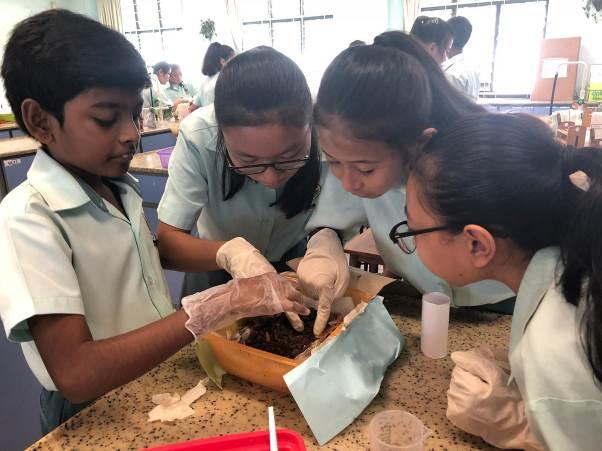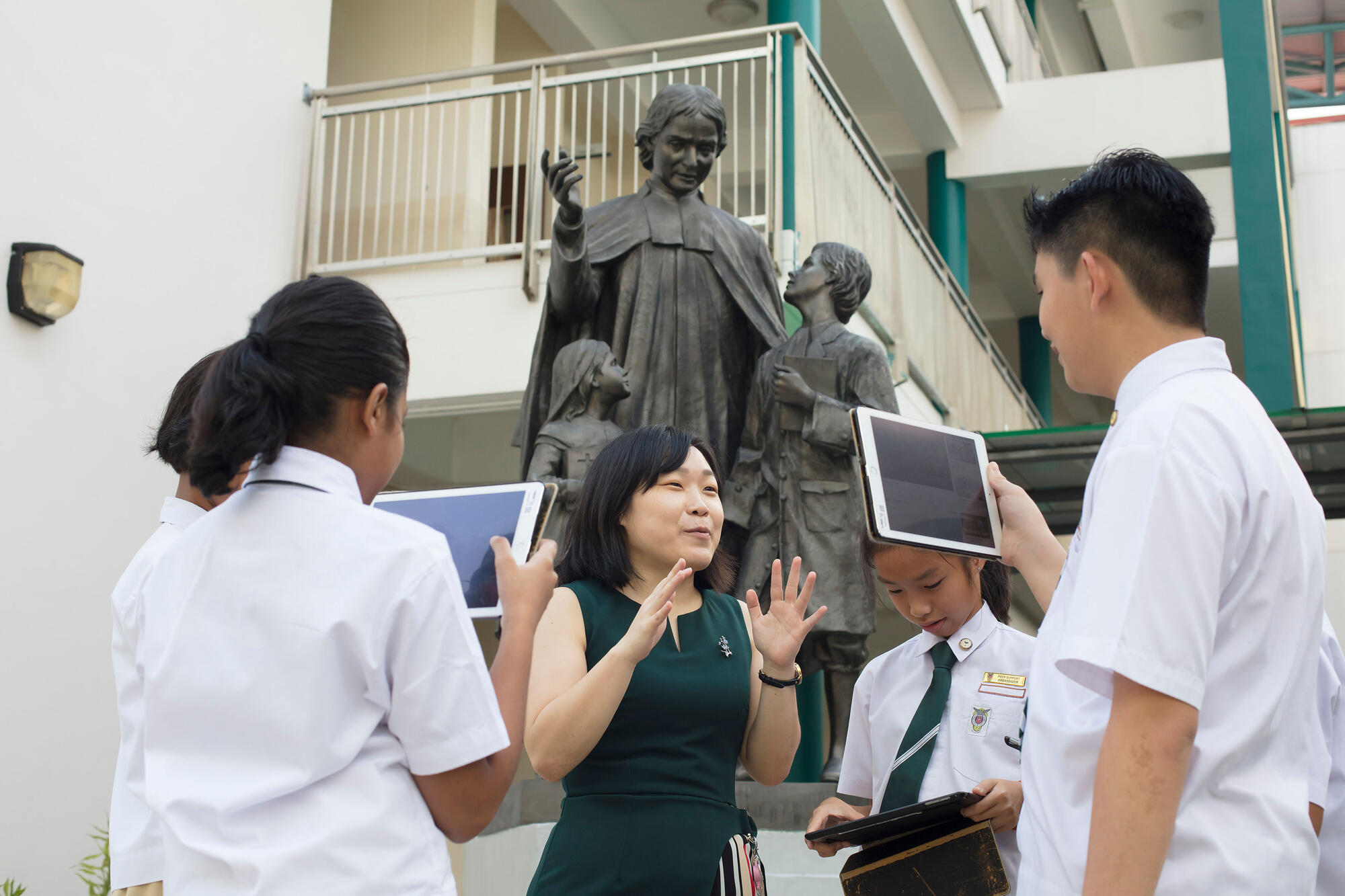Where do food scraps and leftovers usually go to? The bin. For Oviya Umashankar though, she had other ideas.
She built a vermicomposting bin, which comprises worms, shredded newspaper and cardboard. She encouraged and shared with her family to to put the food waste in the vermicomposting bin instead of throwing them away, so that the creatures could turn the scraps into fertiliser for plants. Oviya learned this hack from the Applied Learning Programme (ALP) in Environmental Education at Punggol Secondary School.
“I never knew worms could be so useful in recycling food waste before learning about it in school. My family members are now getting into the habit of recycling food waste instead of throwing them in the bin,” shared Oviya, a Secondary 3 student. “I do this as I think it’s important to be aware of environmental issues and we must for the environment.”
In the Environmental Education ALP, students go through different modules. Besides learning how to recycle food waste, students in the ALP would be exposed to environmental issues around them. The Secondary 1 students would learn about waste management, while Secondary 2 students focus on clean energy.
In the waste management module, students learned about waste incineration, landfills and how to build a vermicomposting system. The students also learned about alternative forms of energy in the clean energy module, such as solar power and extracting biofuel from vegetable oil. Students also joined advocacy projects where they helped raise awareness on recycling and reducing food waste.
One such project was the Community Food Waste Recycling Project @ Punggol East, where students spoke to their schoolmates during recess to educate them on reducing food waste. They also collected food waste from the school canteen’s stall holders to process into compost, which will then be used as fertiliser.
The students took their work a step further and shared their knowledge on caring for the environment with the community. They examined the quality of the compost made from food waste in the canteen and those from vermicomposting.
Through these activities, students did not just awareness of the environmental issues around them. They also got to play advocates and encourage people people around them to do so as well.
But at the end of the day, the programme was not just about learning about cutting waste. What mattered more was that the ALP helped shape students’ views on how they could make a difference in caring for the environment.
“The ALP encourages students to research, collaborate and investigate how and why things happen, and they learn to communicate their ideas clearly,” explained Ms Janani D/O Balakrishnan, Subject Head of Science at Punggol Secondary School. “We want to foster a generation of informed consumers who are also creative problem solvers and powerful advocates for the environment.”






